Nora Schneider
Generative Intervention Models for Causal Perturbation Modeling
Nov 21, 2024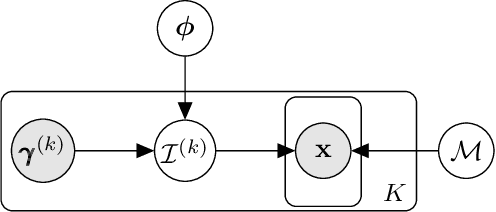
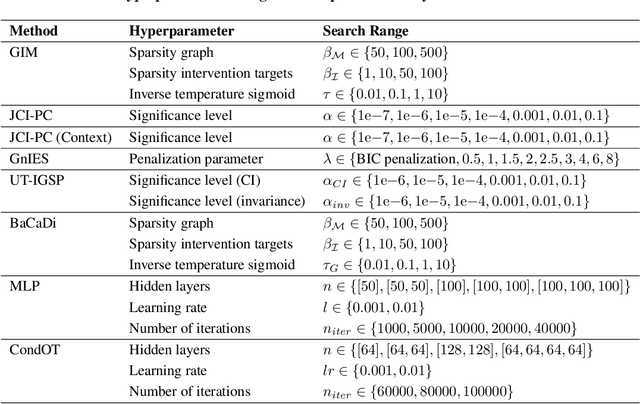
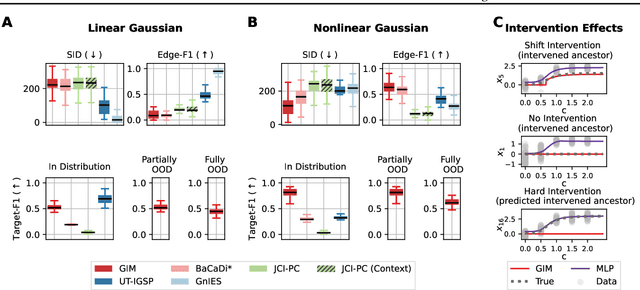
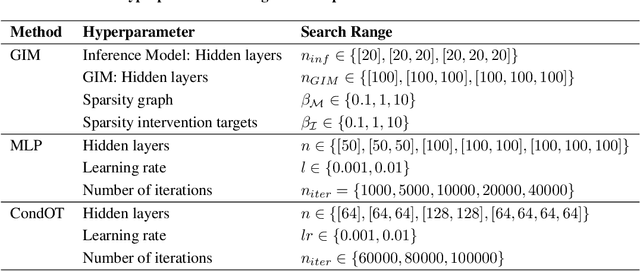
Abstract:We consider the problem of predicting perturbation effects via causal models. In many applications, it is a priori unknown which mechanisms of a system are modified by an external perturbation, even though the features of the perturbation are available. For example, in genomics, some properties of a drug may be known, but not their causal effects on the regulatory pathways of cells. We propose a generative intervention model (GIM) that learns to map these perturbation features to distributions over atomic interventions in a jointly-estimated causal model. Contrary to prior approaches, this enables us to predict the distribution shifts of unseen perturbation features while gaining insights about their mechanistic effects in the underlying data-generating process. On synthetic data and scRNA-seq drug perturbation data, GIMs achieve robust out-of-distribution predictions on par with unstructured approaches, while effectively inferring the underlying perturbation mechanisms, often better than other causal inference methods.
Anchor Data Augmentation
Nov 27, 2023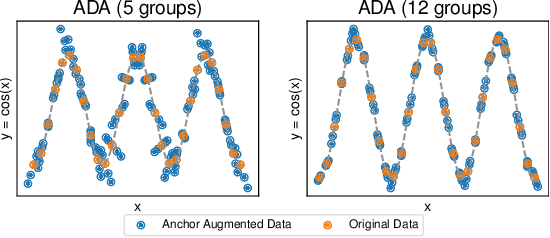



Abstract:We propose a novel algorithm for data augmentation in nonlinear over-parametrized regression. Our data augmentation algorithm borrows from the literature on causality and extends the recently proposed Anchor regression (AR) method for data augmentation, which is in contrast to the current state-of-the-art domain-agnostic solutions that rely on the Mixup literature. Our Anchor Data Augmentation (ADA) uses several replicas of the modified samples in AR to provide more training examples, leading to more robust regression predictions. We apply ADA to linear and nonlinear regression problems using neural networks. ADA is competitive with state-of-the-art C-Mixup solutions.
 Add to Chrome
Add to Chrome Add to Firefox
Add to Firefox Add to Edge
Add to Edge